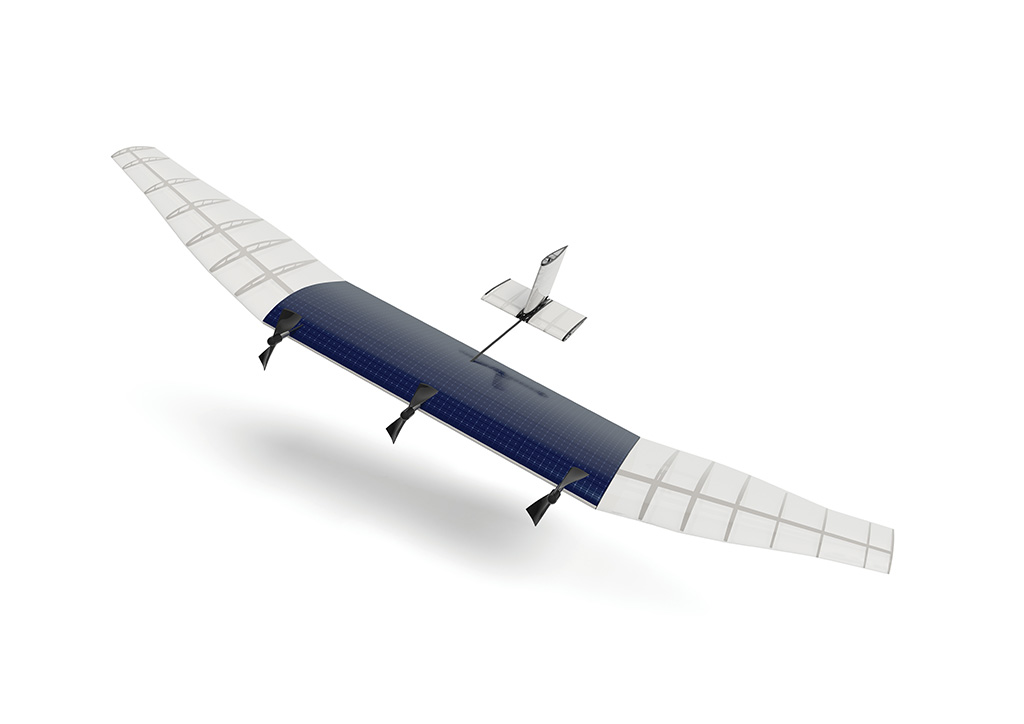Facebook Plans To Beam The Internet Worldwide Using Drones, Lasers & Satellites
In what has been an eventful week for Facebook, we now find that the company isn't done with its weekly agenda. The social media giant has today announced its ambitious program to make internet available to those who still do not have access to it, which is about two-thirds of the world's population. Although the website internet.org was started to that effect last year, global efforts by Facebook and partner tech companies of the project are showing up only now. Over the past year, internet.org's work in Philippines and Paraguay alone doubled the number of people using mobile data and helped 3 million people access the internet.

For the completion of this project, Mark Zuckerberg launched a Connectivity Lab at Facebook. Vaguely described, this lab will build drones, satellites and lasers to deliver internet to everyone. Facebook acquired Ascenta, a UK-based company with deep expertise in designing and building high-altitude long-endurance (HALE) aircraft for $20 Million as a part of this project. This company has had over 100 years of experience in the aerospace industry. They had worked in the development of the Breitling Orbiter (first balloon to fly around the world non-stop) and Zephyr (world's longest flying solar-powered unmanned aircraft). The team also comprises of experts from other renowned organizations such as NASA’s Jet Propulsion Laboratory, NASA’s Ames Research Center, and the National Optical Astronomy Observatory.
The team has divided the target areas according to their population densities and the method to enable the availability of internet will be made according to the group. For example, for some suburban areas solar-powered high altitude, long endurance aircraft that can stay aloft for months, be quickly deployed and deliver reliable internet connections will be used. For lower density areas, low-Earth orbit and geosynchronous satellites could be used to beam internet access to the ground.
The Free-space optical communication, or FSO, a way of using light to transmit data through space using invisible, infrared laser beams is extensively being looked into by the team. FSO is a promising technology that dramatically boosts the speed of internet connections provided by satellites and drones.
Source: #-Link-Snipped-# | #-Link-Snipped-#

The team has divided the target areas according to their population densities and the method to enable the availability of internet will be made according to the group. For example, for some suburban areas solar-powered high altitude, long endurance aircraft that can stay aloft for months, be quickly deployed and deliver reliable internet connections will be used. For lower density areas, low-Earth orbit and geosynchronous satellites could be used to beam internet access to the ground.
The Free-space optical communication, or FSO, a way of using light to transmit data through space using invisible, infrared laser beams is extensively being looked into by the team. FSO is a promising technology that dramatically boosts the speed of internet connections provided by satellites and drones.
Source: #-Link-Snipped-# | #-Link-Snipped-#
Replies
-
 Dhananjay HarkareAfter #-Link-Snipped-#, Facebook's interest in similar project sounds good. Still good connectivity in seven sisters of India looks a distant dream.
Dhananjay HarkareAfter #-Link-Snipped-#, Facebook's interest in similar project sounds good. Still good connectivity in seven sisters of India looks a distant dream. -
 zavericool. for whatever it is
zavericool. for whatever it is
You are reading an archived discussion.
Related Posts
Jason Duke submitted a new project:
Hoop Tracker - World's First Basketball SmartWatch
Hoop Tracker is the world's first smartwatch capable of of automatically tracking real-time 3PT, FG, and FT...
Since its acquisition with WhatsApp, Facebook has been in the news very often. In recent news, an update of Facebook Messenger app for iOS and Android will allow users to...
Airtel Digital TV has launched its latest mobile application called “Airtel Pocket TV” for its digital TV subscribers which allows users to watch their favorite programs or channels while on...
Here link to download page-:
https://www.computerhistory.org/_static/atchm/microsoft-ms-dos-early-source-code/agreement/
https://www.computerhistory.org/_static/atchm/microsoft-word-for-windows-1-1a-source-code/agreement/
Panasonic Corporation has announced a 4K/30p Wearable Camera - the HX-A500 and entitled it as the world's first. The one-of-its-kind wearable camcorder is water and dust-proof and features a level...
